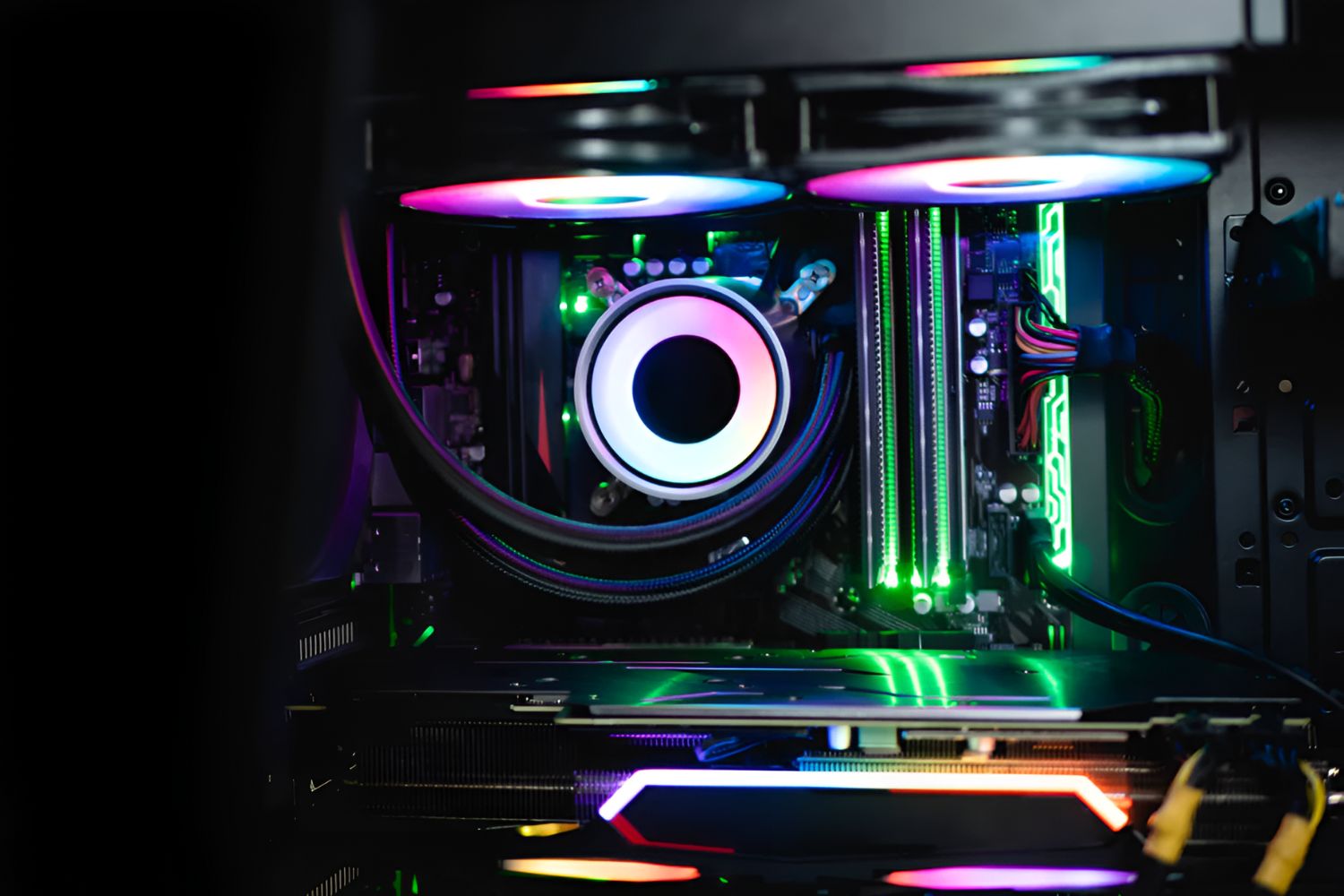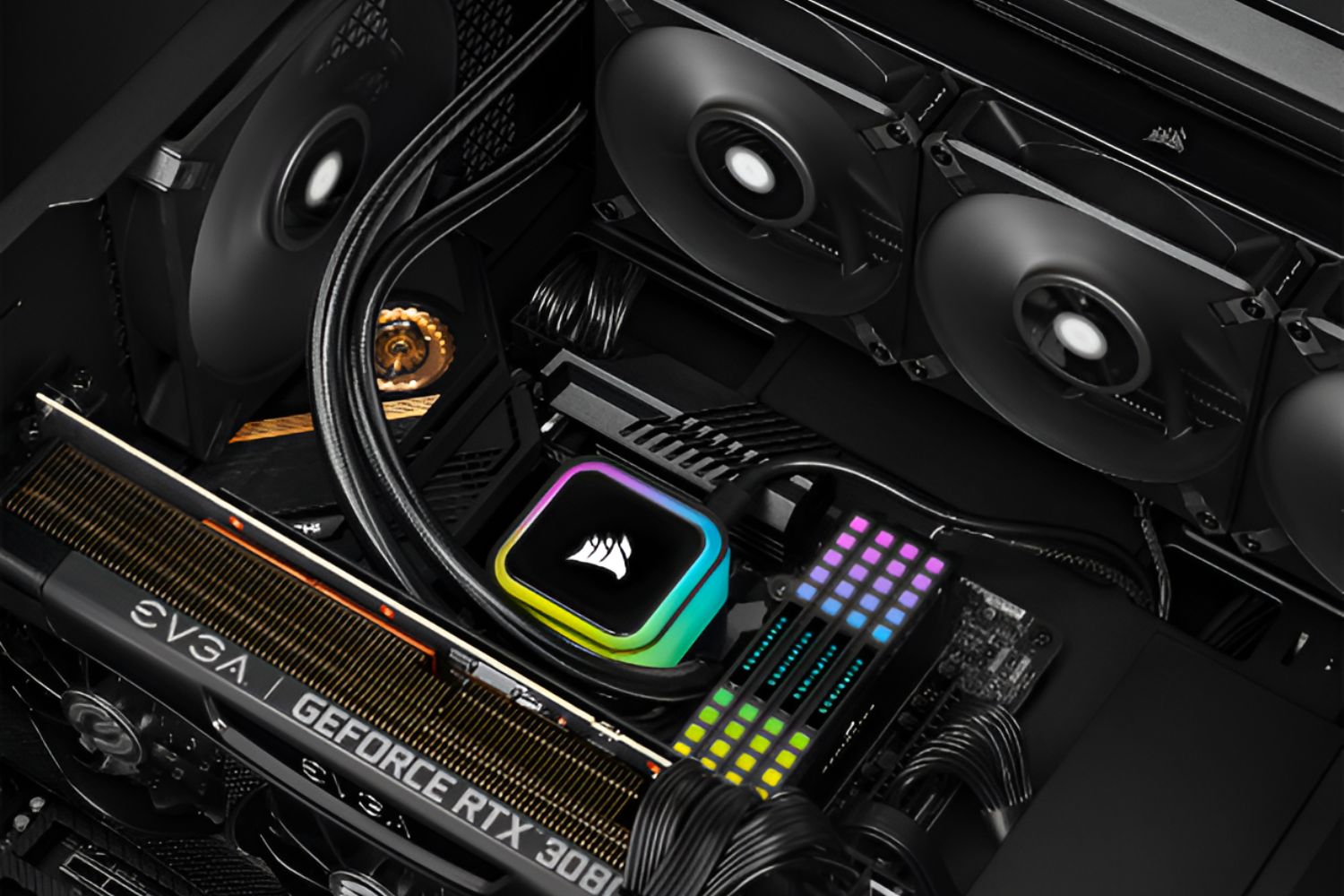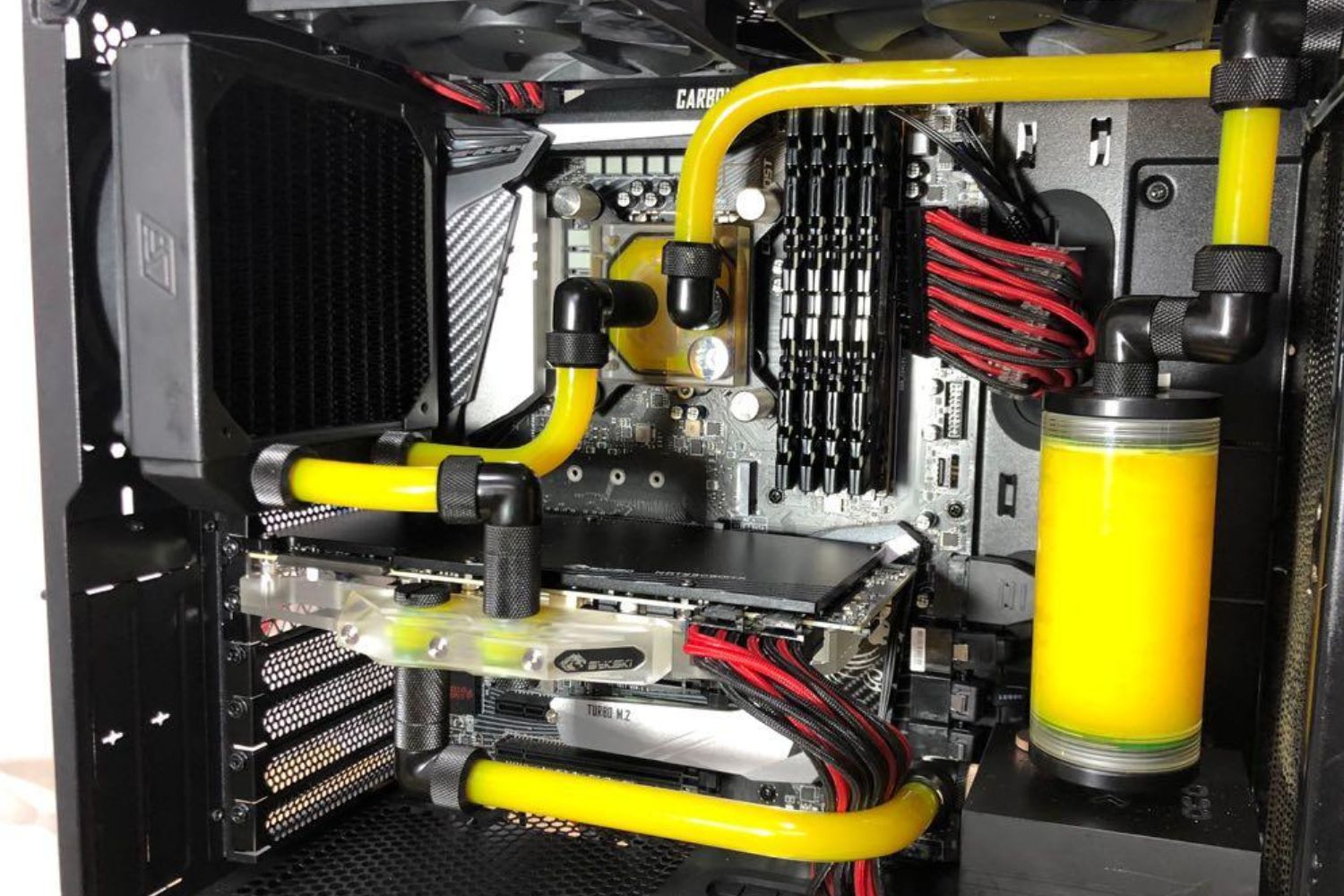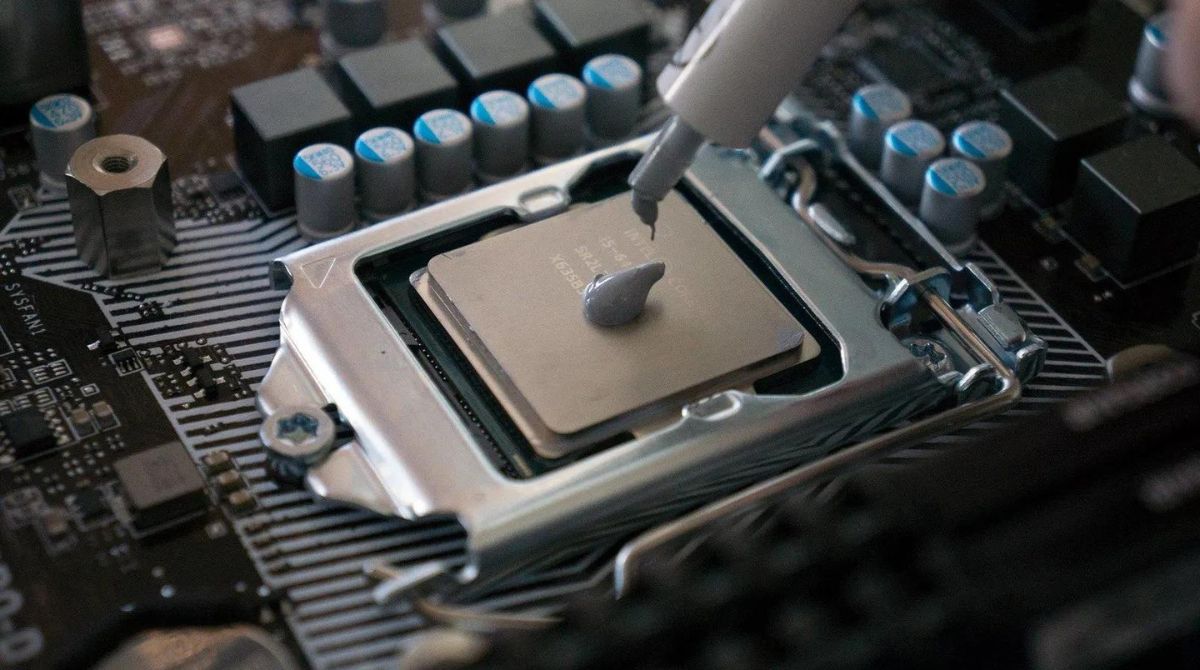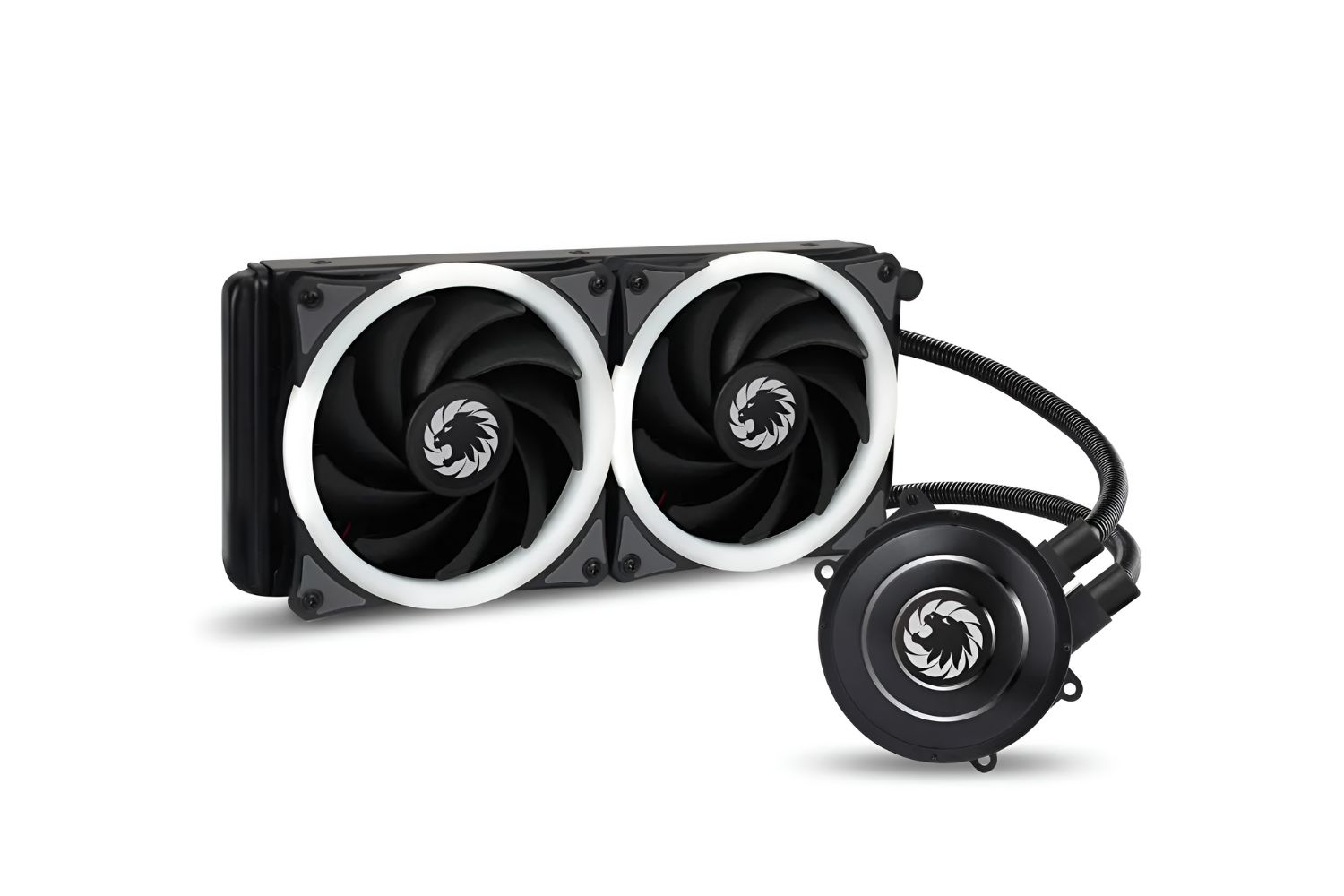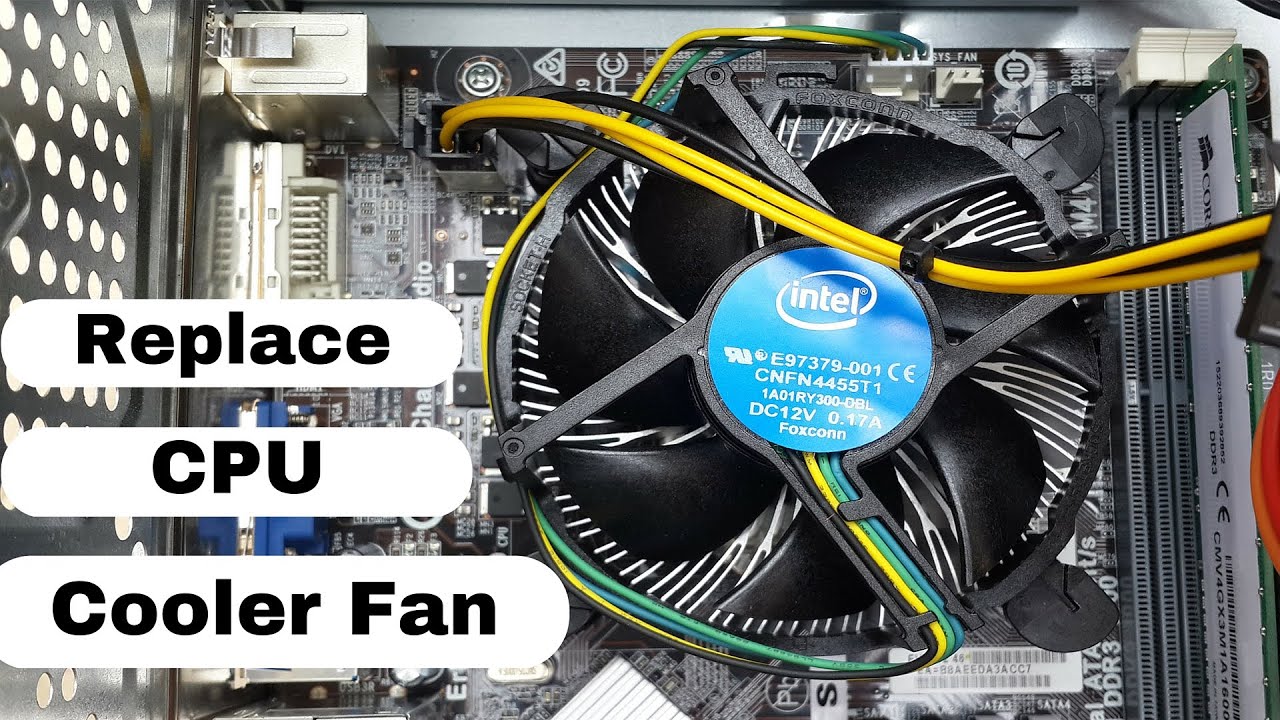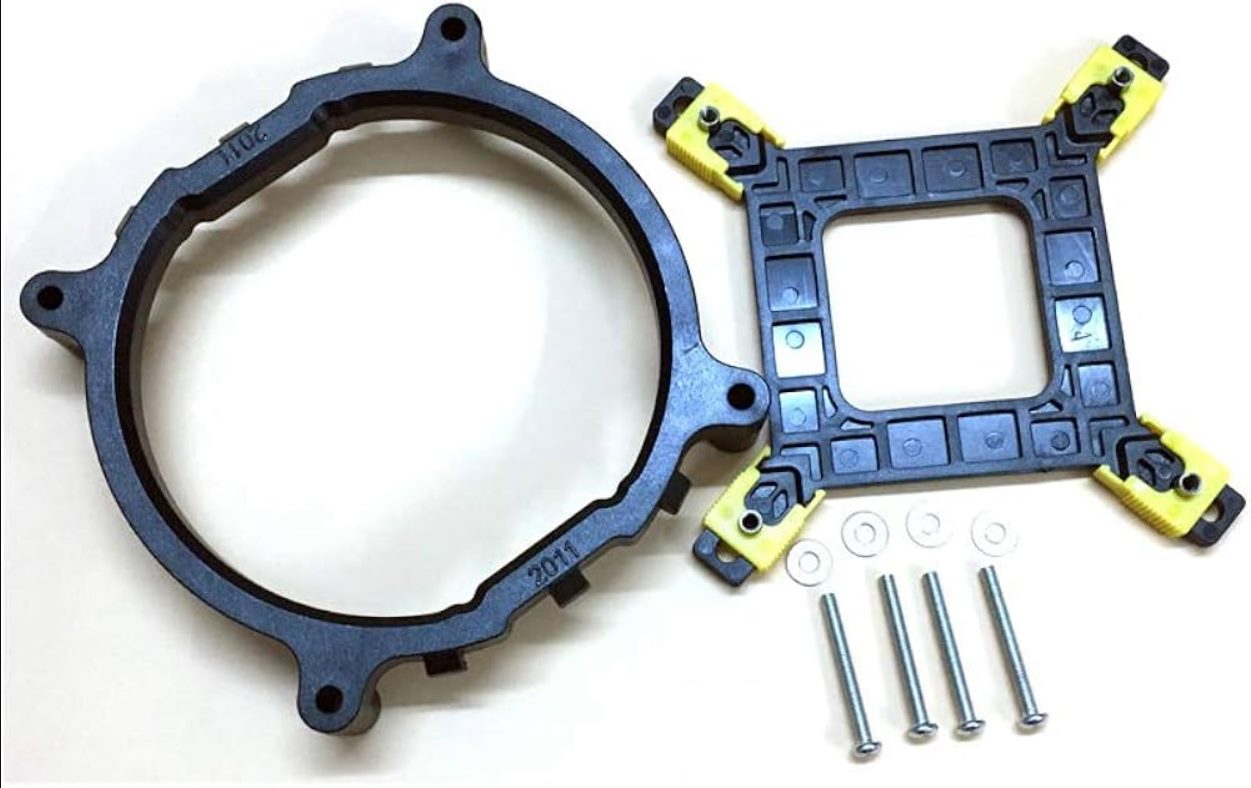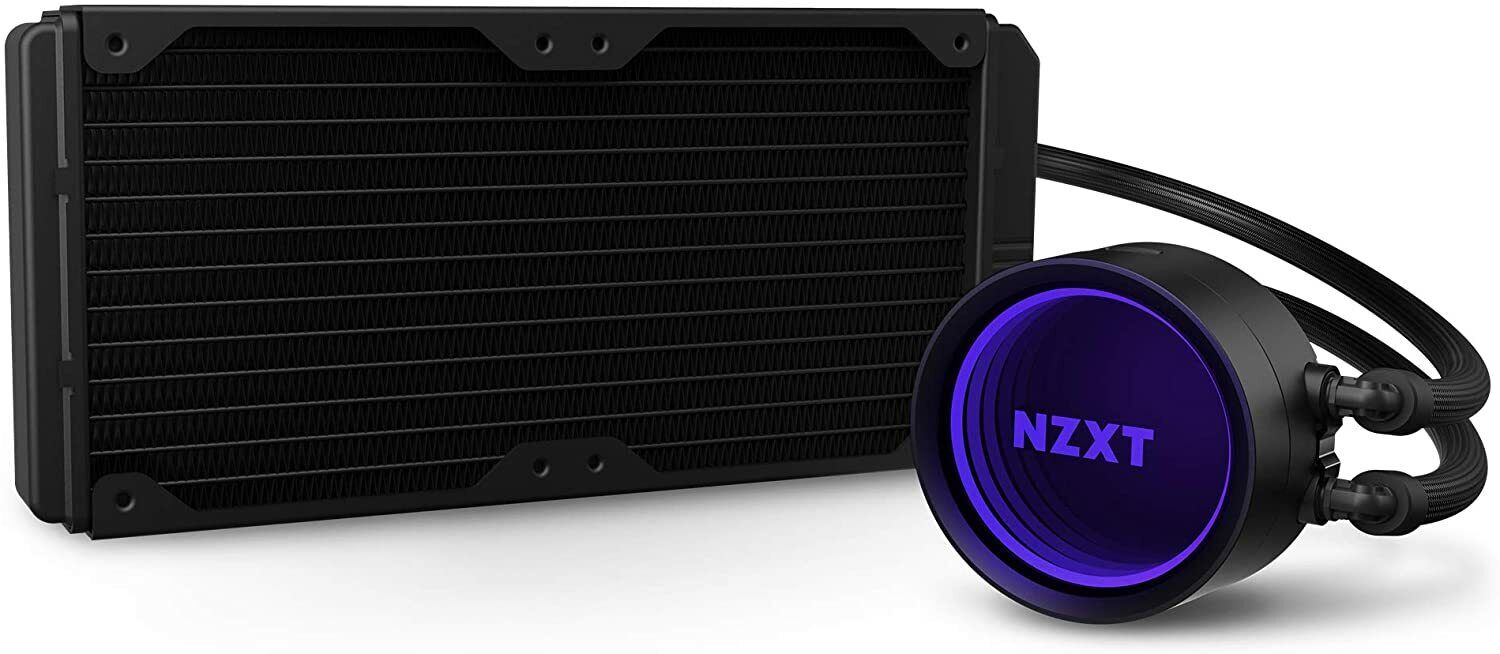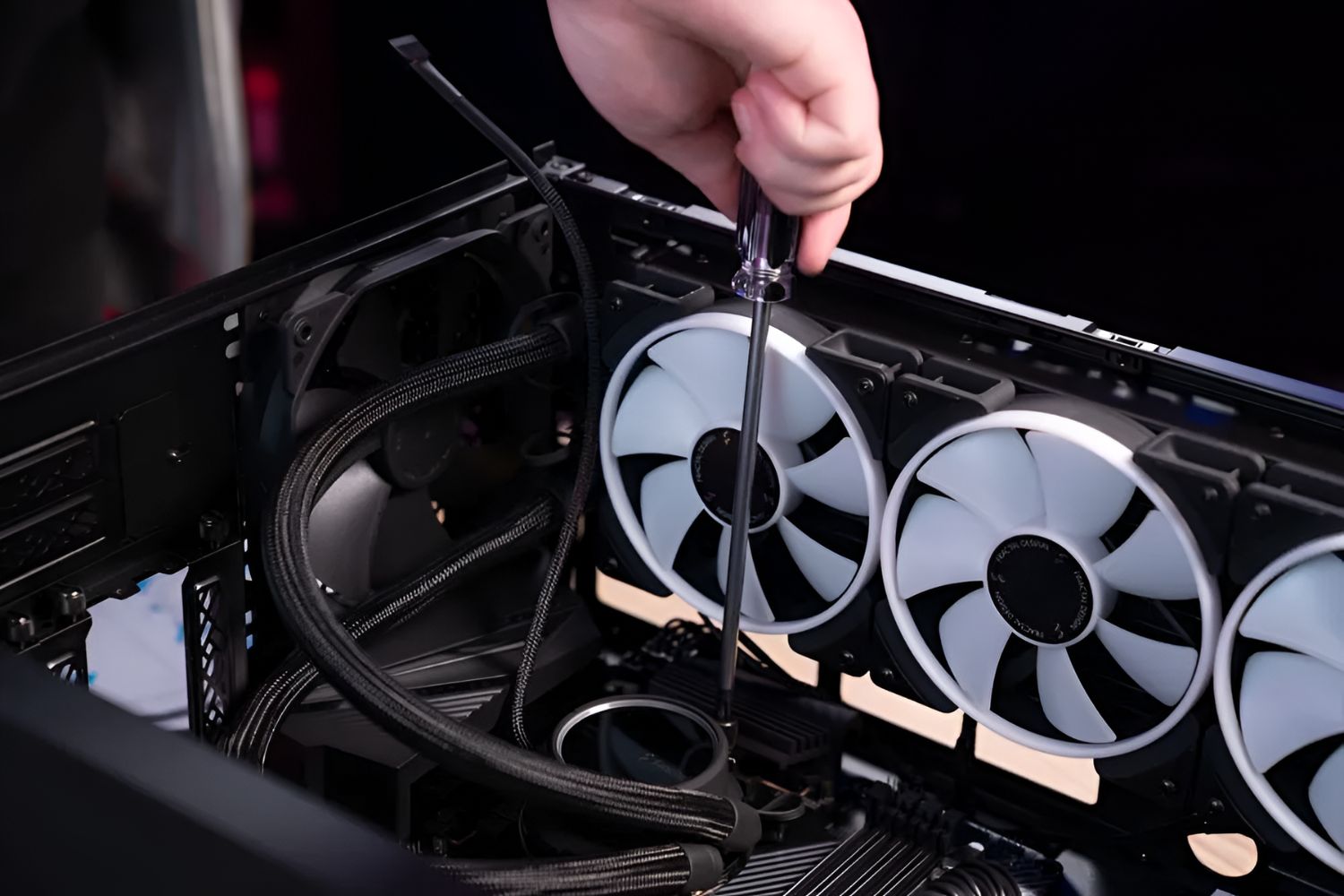Signs of Performance Issues
A CPU cooler is a critical component of any computer system as it helps to regulate the temperature of the processor. Over time, a CPU cooler can start to show signs of performance issues, potentially leading to CPU overheating and system instability. It is important to pay attention to these signs and consider replacing your CPU cooler if you notice any of the following:
- Increase in CPU temperatures: If you constantly notice that your CPU temperatures are higher than usual, it might be a sign that your CPU cooler is no longer adequately cooling the processor. Higher temperatures can lead to performance throttling and even damage the CPU in the long run.
- Frequent system crashes: If your computer is experiencing frequent crashes, especially during demanding tasks, it could be due to CPU overheating. An inefficient CPU cooler may struggle to keep up with the heat generated by the processor, resulting in system instability.
- Reduced system performance: As the CPU temperature rises, the processor can throttle its performance to prevent overheating. This can result in slower system performance and hinder your overall computing experience.
- Unusual fan noises: If you start noticing louder or abnormal noises coming from your CPU cooler’s fan, it could indicate that the fan bearings are wearing out. A worn-out fan may not spin at the required speed, leading to insufficient cooling and increased temperatures.
- Visible signs of wear: Inspect your CPU cooler for any visible signs of wear or damage such as loose screws, bent fins, or damaged heat pipes. These issues can affect the cooler’s overall performance.
If you are experiencing any of these signs, it might be time to consider replacing your CPU cooler. Upgrading to a more efficient and compatible cooler can help improve CPU temperatures, enhance system stability, and ensure optimal performance for your computer.
Compatibility Issues with Newer CPUs
As technology advances, newer CPUs are released with increased power and efficiency. However, these newer processors may have different socket types or thermal requirements compared to older CPUs. This can lead to compatibility issues with your existing CPU cooler. Here are some common compatibility issues to consider:
- Socket compatibility: Different CPU models use different socket types to connect to the motherboard. If you are upgrading to a newer CPU with a different socket type, your current CPU cooler may not be compatible. It is important to check the specifications of your CPU and ensure that the cooler you choose supports the same socket type.
- Thermal requirements: Newer CPUs often have different thermal requirements due to changes in architecture or power consumption. This can result in higher heat output, requiring a more powerful cooler to adequately cool the processor. Using an incompatible cooler may lead to overheating and performance issues.
- Clearance issues: Some CPU coolers can be quite large in size and may not fit in all computer cases. If you are upgrading to a newer CPU and your existing cooler is too large, it may obstruct other components or have clearance issues with the motherboard or RAM slots. It is important to consider the dimensions of your CPU cooler and ensure it will fit properly in your system.
Before replacing your CPU cooler, it is crucial to research and ensure compatibility with your CPU and other components. Check the specifications of both the CPU cooler and the CPU to ensure they are compatible in terms of socket type, thermal requirements, and clearance. It is also recommended to consult the manufacturer’s documentation or website for any specific compatibility guidelines.
By addressing compatibility issues, you can ensure a smooth transition when upgrading to a newer CPU and minimize the risk of compatibility-related performance problems or hardware damage.
Aging and Wear
Over time, the performance of a CPU cooler can be affected by aging and wear. As the cooler is continuously exposed to high temperatures, thermal stress, and fan operation, it may begin to deteriorate. Here are some factors to consider related to aging and wear:
- Dust and debris accumulation: Dust and debris can accumulate on the CPU cooler’s heatsink and fan over time, obstructing airflow and reducing cooling efficiency. This can lead to higher CPU temperatures and reduced cooling performance. Regular cleaning and maintenance can help extend the life of the cooler and optimize its performance.
- Thermal paste degradation: The thermal paste between the CPU and the cooler helps to ensure optimal heat transfer. However, over time, the thermal paste can dry out and lose its effectiveness, leading to poor heat dissipation. Reapplying fresh thermal paste can help restore the cooler’s thermal performance.
- Fan wear and failure: The fan in the CPU cooler is an essential component for heat dissipation. With continuous operation, the fan bearings can wear out, causing increased noise or even complete fan failure. If the fan is not functioning properly, the cooling performance will be compromised, resulting in higher CPU temperatures.
- Corrosion and rust: Exposure to moisture or high humidity can cause corrosion and rust on the heatsink or other metal components of the CPU cooler. This can lead to reduced thermal conductivity and compromise the cooler’s performance. Regular maintenance and keeping the system in a dry environment can minimize the risk of corrosion.
As a CPU cooler ages and wears out, its ability to effectively cool the CPU decreases. This can result in higher CPU temperatures, reduced system stability, and even potential damage to the CPU. Monitoring the performance of your CPU cooler over time and considering its age and wear is crucial. If you notice significant deterioration or increased temperature levels, it may be time to replace the cooler to maintain optimal cooling performance.
Excessive Noise or Heat
One of the clear signs that your CPU cooler may need replacement is excessive noise or heat. A properly functioning CPU cooler should operate quietly and efficiently. Here are some reasons why you may experience excessive noise or heat:
- Failing or malfunctioning fan: If you notice unusually loud fan noises coming from your CPU cooler, it may indicate a failing or malfunctioning fan. A fan that is struggling to spin properly or is nearing the end of its life can result in increased noise levels. Inefficient fan operation can also lead to inadequate airflow and higher CPU temperatures.
- Dust and dirt accumulation: Over time, dust and dirt can build up on the heatsink and fan blades of the CPU cooler. This buildup can obstruct airflow and disrupt the cooling process. As a result, the CPU cooler will have to work harder, resulting in increased noise levels and inefficient heat dissipation.
- Inadequate cooling capacity: If your CPU cooler is not designed to handle the heat generated by your processor, it can lead to excessive heat buildup. This can cause the CPU temperatures to rise, triggering the fan to operate at higher speeds and generate more noise. Upgrading to a cooler with a higher cooling capacity can help reduce noise levels and improve heat dissipation.
Excessive noise from your CPU cooler can be distracting and irritating, while excessive heat can lead to poor performance and potential damage to your CPU. If you are experiencing either of these issues, it is recommended to assess the state of your CPU cooler and consider a replacement if necessary.
Overclocking and High CPU Usage
If you are someone who engages in overclocking or utilizes applications that put a high demand on the CPU, it is crucial to have a CPU cooler that can handle the increased heat generated. Here are some reasons why overclocking and high CPU usage may necessitate a cooler replacement:
- Increased heat output: Overclocking involves pushing the CPU beyond its stock settings, resulting in higher clock speeds and increased heat output. This places additional stress on the CPU cooler to dissipate the excess heat. If your current cooler is not designed for overclocking or cannot handle the increased heat, it may struggle to maintain safe temperatures, leading to system instability.
- Insufficient cooling capacity: Applications that require high CPU usage, such as video editing or gaming, can cause the processor to operate at near maximum capacity for extended periods. This results in heightened heat generation that must be effectively managed by the CPU cooler. If your cooler has a limited cooling capacity, it may not be able to keep up with the excess heat and cause the CPU to throttle, impacting performance.
- Thermal throttling: When a CPU reaches its maximum safe operating temperature, it will automatically reduce its clock speed to lower the heat output. This is known as thermal throttling. If your CPU cooler is inadequate for the task at hand, the CPU may throttle frequently, negatively affecting performance and user experience.
When engaging in overclocking or using CPU-intensive applications, it is crucial to have a CPU cooler that can effectively dissipate heat and maintain safe temperatures for optimum performance. Upgrading to a cooler that is specifically designed for overclocking or has a higher cooling capacity will help ensure that your CPU can handle the increased demands without compromising stability or risking damage.
Upgrading Other Components
When considering whether to replace your CPU cooler, it is essential to take into account any plans or considerations for upgrading other components in your computer system. Upgrading other components can impact the overall heat output and compatibility requirements, which may influence the need for a new CPU cooler. Here are some factors to consider:
- CPU upgrade: If you are planning to upgrade your CPU to a more powerful or newer model, it is essential to ensure that your current CPU cooler is compatible with the new processor. Different CPUs may have different thermal requirements or socket types, which could render your existing cooler incompatible.
- Case upgrade: If you are planning to upgrade your computer case, it is crucial to consider the dimensions and compatibility with your current CPU cooler. Some cases may have limitations on cooler height or compatibility with certain cooler types. Upgrading to a new case could necessitate a new CPU cooler that fits properly and provides adequate cooling.
- RAM or motherboard upgrade: Upgrading your RAM or motherboard could also impact the airflow and clearance within your system, affecting the performance of your CPU cooler. It is important to ensure that your CPU cooler does not interfere with the installation of new RAM modules or conflict with the layout of your new motherboard.
By considering potential upgrades to other components in your computer system, you can assess whether your current CPU cooler will still meet the requirements and provide sufficient cooling. Upgrading other components may necessitate a new CPU cooler to ensure compatibility, proper fit, and optimal cooling performance.
Recommendations for Replacement
If you have identified signs of performance issues, compatibility problems, excessive noise or heat, or are considering upgrades to other components, it may be time to replace your CPU cooler. Here are some recommendations to consider when selecting a replacement:
- Research and compatibility: Before purchasing a new CPU cooler, thoroughly research the specifications and compatibility requirements of your CPU, motherboard, and computer case. Ensure that the cooler you choose is compatible with your CPU socket type, provides sufficient cooling capacity, and fits within the dimensions of your case.
- Cooling capacity: Consider the cooling capacity of the CPU cooler based on your specific needs. If you engage in overclocking or use CPU-intensive applications, opt for a cooler with a higher cooling capacity to effectively dissipate heat and maintain optimal temperatures.
- Noise level: Look for a CPU cooler that operates at a noise level that is acceptable to you. Cooler designs with larger fans or heat sinks can provide efficient cooling while maintaining lower noise levels.
- Build quality: Invest in a CPU cooler from a reputable manufacturer known for its quality and durability. A well-built cooler will not only provide efficient cooling but also last longer, ensuring reliable performance over time.
- Budget: Consider your budget when selecting a CPU cooler. Coolers come in a wide range of prices, and while it is important to find one that meets your needs, it is also important to choose an option that fits within your budget.
By considering these recommendations, you can make an informed decision when choosing a replacement CPU cooler. Installing a properly functioning cooler that meets your requirements will help maintain optimal performance, stability, and longevity for your computer system.
Conclusion
Knowing when to replace your CPU cooler is crucial to maintaining the performance, stability, and longevity of your computer system. By being aware of the signs of performance issues, compatibility problems, excessive noise or heat, and considering upgrades to other components, you can make an informed decision about replacing your CPU cooler.
Signs such as increased CPU temperatures, frequent system crashes, reduced performance, unusual fan noises, and visible wear indicate that it may be time for a replacement. Compatibility issues with newer CPUs, aging and wear of the cooler, excessive noise or heat, and the need for overclocking and high CPU usage also warrant considering a replacement.
When selecting a new CPU cooler, it is essential to research compatibility, assess cooling capacity, consider noise levels, prioritize build quality, and work within your budget. By carefully considering these factors, you can choose a CPU cooler that meets your needs and ensures effective heat dissipation while maintaining system stability and optimal performance.
Investing in a high-quality CPU cooler and conducting regular maintenance, such as cleaning and applying fresh thermal paste, can help keep your CPU temperatures in check and extend the life of your computer system. A properly functioning CPU cooler not only ensures efficient cooling but also contributes to a smoother user experience, especially for demanding tasks and applications.







